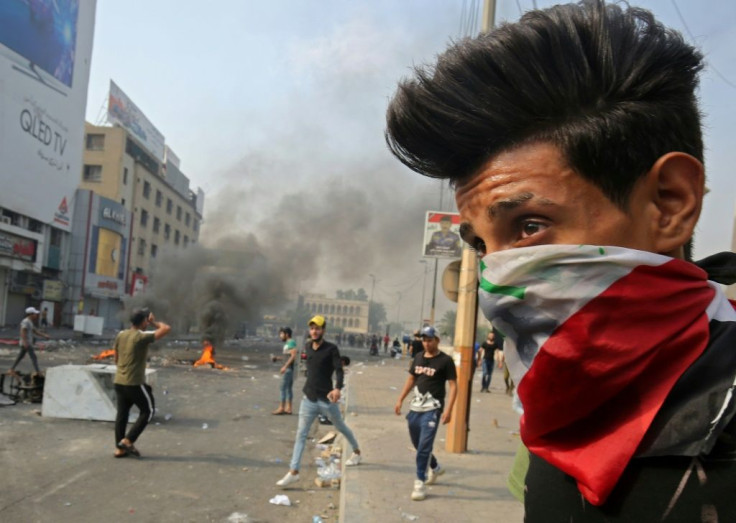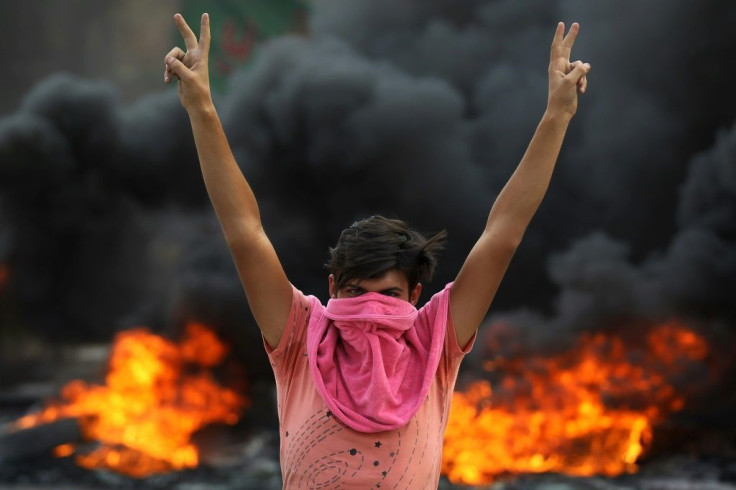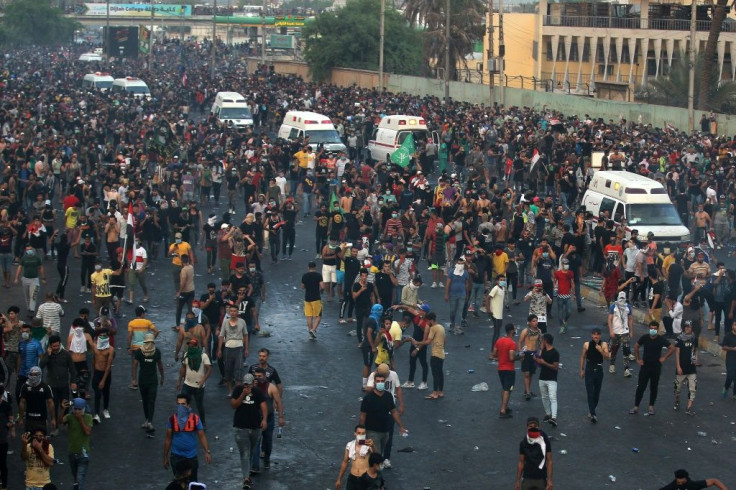Protesters Shun Politicians They Blame For Iraq Woes

The mainly young protesters who have flooded Iraqi streets this week say their movement is spontaneous with no space for the clerics and politicians they accuse of hijacking previous protests for jobs and better services.
"This movement doesn't look like any of the previous ones -- it's a popular, apolitical movement that isn't linked to a party or a tribe," said Majid Saher, 34, while protesting in Baghdad.
In Iraq's politicised society, large-scale protests are usually called by politicians or religious figures, chief among them Shiite spiritual leader Grand Ayatollah Ali Sistani and firebrand cleric Moqtada al-Sadr.
This time, protesters claimed, is different.
"There is no leader. Look how many we are here. We're all young and unemployed," said Hussein Mohammad at a demonstration in the capital.
Thousands have packed the squares and thoroughfares of Baghdad and cities across the south since Tuesday, burning tyres and waving the national flag.
Many make do with swimming goggles or sunglasses to protect them from the volleys of tear gas fired by police.
Chief among their many grievances is high youth unemployment, with many posters and chants referring to a "right" to work.
The state remains Iraq's biggest employer and has typically provided jobs for most university graduates, but recruitment appears to have slowed this year.

Youth unemployment now stands at 25 percent, twice the overall rate, according to the World Bank.
'Parties robbed us'
Other grievances include Iraq's chronic power cuts and water shortages, and state corruption.
Iraqi is listed as the world's 12th most corrupt country by Transparency International.
"Our number one problem is corruption. It has killed us," said Walid Ahmad, a former soldier protesting in Baghdad.
He barely got out his words between coughing fits as those around him lit tyres at a road junction in the city centre.

"Today, we just want our people and country. We don't want political parties, dignitaries or religious chiefs. We don't want them to join our movement," Ahmad said.
Nesrine Mohammed, one of the few women among the protesters, said she wanted to dispense with the whole of Iraq's political class.
"We haven't heard anything but lies and unfulfilled promises from the government and politicians," she said.
"The parties have robbed us of all our dreams. There's no place for the poor in this country," the 46-year-old added.
For Fanar Haddad, an Iraq expert at the National University of Singapore, the most significant absentee from this week's protests is Sadr.
Supporters of the former militia leader turned nationalist politician have been at the forefront of most of the larger protests in recent years, including in 2016 when he urged them to storm Baghdad's then-still-sealed Green Zone administrative and diplomatic compound.
"This is the first time that there are mass, significant and violent protests without Sadrist involvement," he said.
'Double-edged sword'
"One of the myths being burst is that only Sadrists can bring people out to the streets -- it seems people can bring themselves out to the streets," said Haddad.
But this apparent independence "is a double-edged sword for both the government and protesters themselves," he warned.
On the one hand, the broad-based nature of the protests will make it difficult for a political party to hijack them or for the central government to appease them.
"But it's also a weakness for protesters -- where can this go? I can't see it going anywhere definitive," Haddad said.
Some demonstrators in recent days chanted for "the downfall of the regime," a refrain popularised during the Arab Spring uprisings that targeted dictatorships across the Arab world in 2011.
But while the protests may bring down Prime Minister Adel Abdel Mahdi just short of a year in office, few had expected his government to last this long anyway.
And Iraq has such a diffuse power structure, there are no other obvious targets for the protesters' anger.
"There's no king to take to the guillotine," Haddad said.
© Copyright AFP 2024. All rights reserved.





















